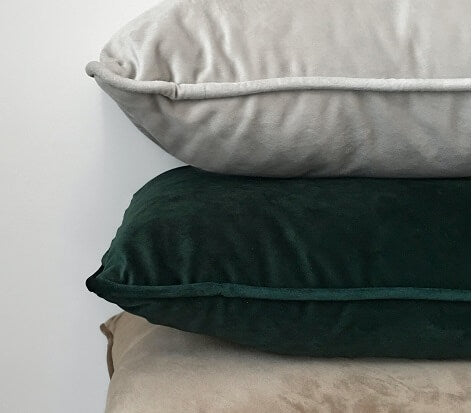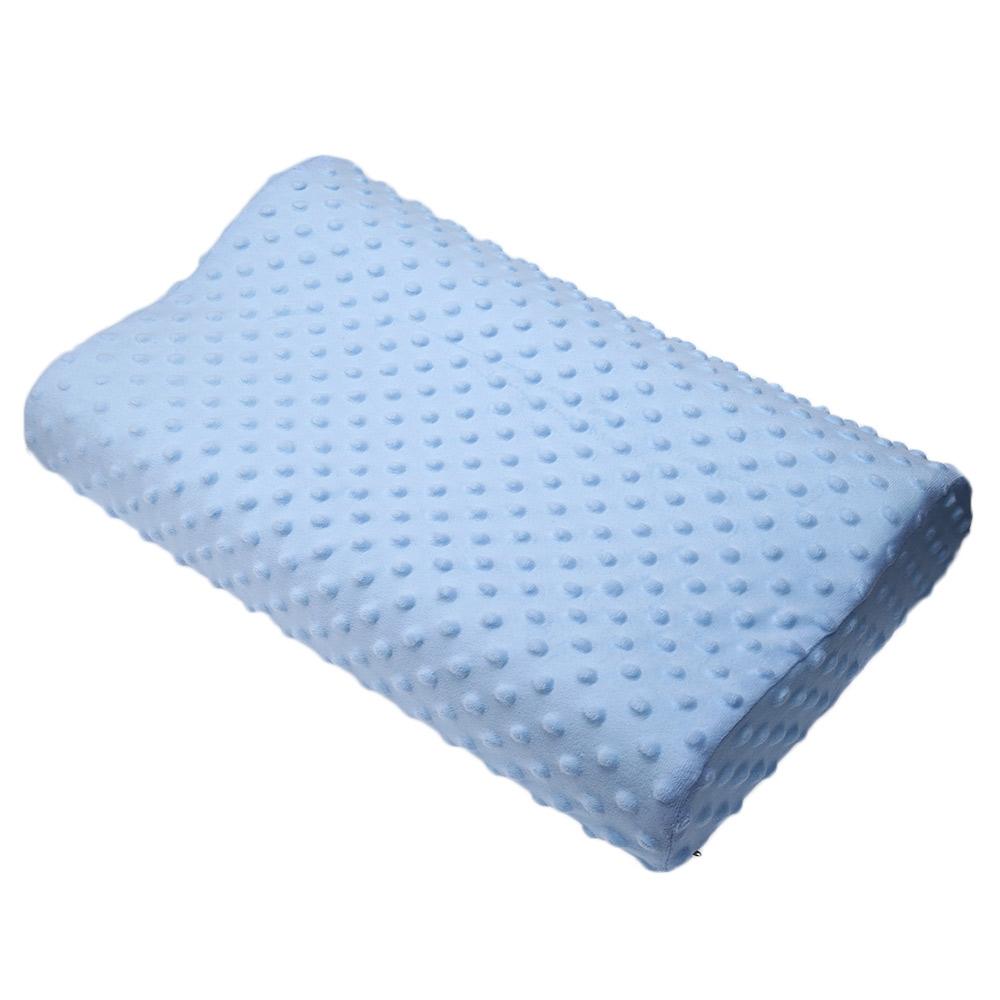When we think about getting a good night's sleep, we often focus on our mattress or bedding. However, one crucial element that often goes unnoticed is the humble pillow. Pillows play a vital role in ensuring we get the rest we need to feel refreshed and rejuvenated the next day. From providing support to the neck and spine to enhancing comfort, the right pillow can make all the difference in achieving quality rest.

Understanding the Vital Role of Pillows in Sleep Quality
Pillows serve a much deeper purpose than merely acting as a cushion for our heads. Their essential function in maintaining proper spinal alignment cannot be overstated, as this directly impacts our overall sleep health and comfort. An appropriate pillow provides necessary support to our neck and shoulders, areas that are particularly susceptible to strain and discomfort. Without adequate support, we risk disturbing our body's natural alignment, leading to potential discomfort and restless nights.
Moreover, pillows contribute to relieving pressure points across the body, you can maybe try an anime body pillow to suit your taste. This is especially beneficial for individuals who might experience particular sensitivity in areas such as the hips, shoulders, and neck. By alleviating these pressure points, pillows can enhance blood circulation throughout the night, which not only aids in reducing the likelihood of waking up due to discomfort but also promotes a deeper, more restorative sleep cycle.
It's also worth noting the importance of pillow support in preventing common sleep disturbances. For example, a pillow that properly supports the neck can help minimize the chances of obstructive sleep apnea, a condition where breathing temporarily stops during sleep, leading to frequent awakenings. Similarly, a well-chosen pillow can reduce snoring by ensuring the airways remain open and unobstructed throughout the night.
In essence, the role of pillows extends beyond simple comfort; they are foundational in fostering a sleep environment that supports health and well-being, highlighting their critical role in our sleep quality.
How the Wrong Pillow Can Disrupt Your Sleep
Choosing an inappropriate pillow can significantly detract from sleep quality, acting as a catalyst for various sleep-related issues. A pillow that fails to meet one's individual needs—whether due to being excessively firm or overly plush—can precipitate a host of discomforts, from persistent neck soreness to the onset of headaches upon awakening. These physical ailments not only disrupt the process of falling asleep but can also lead to frequent awakenings throughout the night, preventing the deep, restorative sleep cycles our bodies require.
Moreover, the repercussions of a mismatched pillow extend beyond mere physical discomfort. For instance, a pillow that inadequately supports the head and neck can exacerbate or contribute to the development of sleep apnea and snoring. The former condition, characterized by repeated breathing pauses during sleep, and the latter, often a symptom of obstructed airways, both serve to fragment sleep, diminishing its overall quality and the recuperative effect it is meant to have.
Equally important is the consideration of one's sleep position in relation to pillow choice. A mismatch here can further amplify discomfort and sleep disturbance. For example, a side sleeper using a pillow designed for a stomach sleeper might find their neck at an awkward angle, leading to strain and discomfort that hampers sleep quality.
Thus, the importance of selecting a pillow that harmonizes with one’s sleep preferences and physical requirements cannot be understated. Doing so is pivotal in avoiding the cascade of negative effects stemming from an unsuitable pillow, ensuring sleep remains uninterrupted and genuinely restorative.
The Different Types of Pillows and Whom They Benefit Most
Navigating the variety of pillows available can feel overwhelming, yet understanding the nuances between types is key to enhancing sleep quality. Memory foam pillows, celebrated for their ability to conform to the shape of the head and neck, provide exceptional support and pressure relief, making them ideal for individuals experiencing chronic neck pain or those seeking to maintain spinal alignment. Down pillows, on the other hand, are prized for their softness and luxury, offering a plush sleeping surface that can soothe sleepers into a deep slumber.
For side sleepers, a body pillow can be transformative. These long, bolster-like pillows offer unparalleled support to the hips and shoulders, aligning the spine and reducing the pressure that can accumulate in these areas throughout the night. Latex pillows are another option, known for their firmness and breathability, which can benefit hot sleepers and those requiring a stable, lifted support for the head and neck.
Furthermore, wedge pillows offer a unique shape that can aid with specific health conditions, such as acid reflux or congestion, by elevating the upper body in a comfortable manner. And for those with specific alignment needs, cervical pillows are designed to support the contours of the neck, potentially alleviating pain and discomfort.
Each pillow type brings distinct advantages depending on individual sleep preferences, health requirements, and comfort desires. Recognizing the specific benefits of each can guide sleepers toward making a choice that profoundly impacts their rest and overall well-being.

Aligning Your Pillow Choice with Sleep Position
Selecting the appropriate pillow based on your sleep position is a critical component in ensuring a comfortable night's rest and maintaining the health of your spine. For individuals who primarily sleep on their back, a thinner pillow might be the most beneficial. This type of pillow can assist in preserving the natural curvature of the cervical spine, thereby preventing any undue strain on the neck. On the contrary, side sleepers often find that a thicker, more supportive pillow provides the necessary elevation to keep their head and neck in alignment with their spine, which is crucial for avoiding discomfort and promoting optimal sleep health.
Stomach sleepers face a unique challenge, as sleeping in this position can easily lead to neck strain if the pillow is too high. A softer, flatter pillow can help minimize this risk by ensuring the neck isn't forced into an unnatural angle, thereby supporting a more neutral spinal alignment. It's also pertinent for stomach sleepers to consider the potential for lower back strain and select a pillow that minimizes this risk.
Personal preference plays a significant role in pillow selection; however, understanding how your sleep position impacts your spinal alignment and overall sleep comfort can guide you toward making an informed choice. This alignment is not just about comfort—it's about fostering a sleep environment that supports your body's natural posture and contributes to a restorative night's rest.
The Connection Between Pillows and Allergies
Pillows are not only key to a comfortable night's sleep but also play a significant role in the health of individuals with allergies. Over time, pillows can accumulate dust mites, pet dander, and various other allergens that are known to trigger allergic reactions. These allergens can disrupt sleep by causing symptoms such as sneezing, congestion, and itchy eyes, which in turn, impact the quality of rest.
To mitigate these issues, it is advisable to maintain a clean sleeping environment. This includes regularly washing both pillowcases and the pillows themselves, if they are machine washable. Incorporating hypoallergenic pillow covers into your bedding routine is another effective strategy. These covers act as a barrier against allergens, keeping them at bay and making it easier to maintain a clean pillow surface.
For individuals who find their allergies particularly bothersome, investing in pillows designed with allergy sufferers in mind might be beneficial. These pillows are often made from materials that naturally repel dust mites and other allergens, providing an additional layer of protection against the substances that disrupt sleep.
Additionally, airing out pillows in the sunshine can help reduce moisture content and discourage the growth of mold, another common allergen. Keeping pets off the bed and using air purifiers in the bedroom can further reduce exposure to allergens, creating a more conducive environment for restful sleep. By taking these steps, individuals with allergies can enjoy a more comfortable, uninterrupted night's rest, highlighting the critical connection between pillows and allergies in sleep health.
When to Replace Your Pillow for Optimal Sleep Health
Maintaining the quality of your sleep environment includes recognizing when it’s time to part ways with your old pillow. Pillows that no longer provide the necessary support compromise not only comfort but also the health of your spine, potentially leading to neck pain and sleep disturbances. While the lifespan of a pillow varies based on its material and how it's cared for, a general guideline is to consider a replacement every 1-2 years. Indicators that it's time for a new pillow include noticeable lumps, permanent stains from body oils and sweat, or if the pillow doesn't return to its original shape after being folded. Frequent headaches or waking up with neck pain can also signal that your pillow is no longer performing its supportive role effectively. Transitioning to a new pillow can rejuvenate your sleep experience, ensuring you receive the supportive, restful night your body needs to thrive.
FAQ
1. What are the secrets to a good night's sleep according to the experts?
Stick to a sleep schedule
Go to bed and get up at the same time every day, including weekends. Being consistent reinforces your body's sleep-wake cycle. If you don't fall asleep within about 20 minutes of going to bed, leave your bedroom and do something relaxing. Read or listen to soothing music.
2. What is the secret to sleeping through the night?
For example, drink a cup of caffeine-free tea, take a warm shower or listen to soft music. Don't use electronic devices with a screen, such as laptops, smartphones and ebooks, for an extended time just before bed. The light from these screens can disrupt your sleep.
3. What is the one sleep habit that matters for a longer life?
Best survival rates were found among those who slept seven hours a night. A group sleeping eight hours was 12% more likely to die within the six year period than those sleeping seven hours, other factors being equal.
What to read next

Troubleshooting Sunbeam Heating Blanket: What Does Blinking Mean?
The Science Behind Sleep Moaning When You're Ill

The Surprising Truth about How Often to Change Pajamas
What to buy
Memory Foam Orthopedic Neck Pillow for Cervical Health
From: $36.00
54"x 20” Cotton Body Pillow Cover | Various Colors
From: $36.95
100% Acrylic Hand Chunky Knitted Blanket – Your Couch’s New Best Friend
From: $145.90










